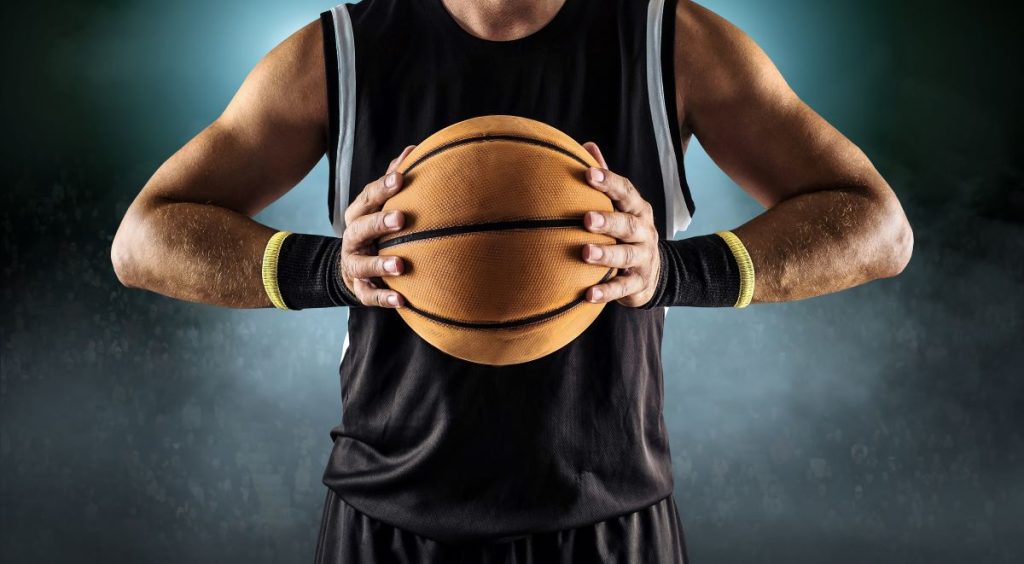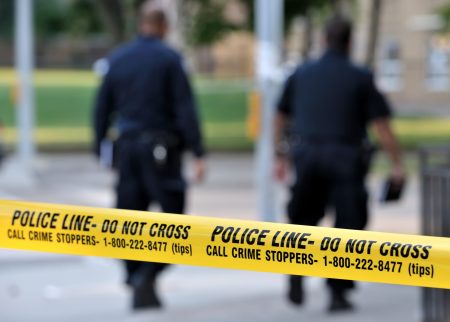By GRACE BARBIC
Capitol News Illinois
SPRINGFIELD – College athletes in Illinois would be able to independently profit from their image or likeness under a bill passed by the Illinois House Saturday.
It’s the latest development in a decades-old debate regarding policies overseen by the NCAA, which is the governing body of most intercollegiate athletics. It still needs approval from the state Senate and the governor to become law.
Senate Bill 2338, sponsored by Chicago Democratic Rep. Kam Buckner, allows college athletes in Illinois to be paid for the use of their name, image and likeness, or voice while enrolled at a post-secondary education institution. It also gives college athletes the ability to obtain an agent or legal counsel. It would take effect July 1 or immediately upon the governor’s signature if it comes after that date.
Buckner said the measure was personal to him as a former football player at the University of Illinois at Urbana-Champaign. Buckner said he and UI athletic director Josh Whitman have partnered on passing this policy change.
The issue of allowing college athletes to be paid has been a topic of much debate in the sports world for decades as the NCAA has barred college athletes from profiting from brand endorsements on the basis of amateurism.
The bill does not allow for salary payment for the college players, but rather allows college athletes to monetize their likeness, such as participating in autograph signings at local businesses or appearing in video games.
“This is really putting Illinois in the right position to be the tip of the spear and lead when it comes to making sure that our young people have autonomy over their name and likeness and image and they’re no longer subject to not having the ability to control that,” Buckner said on the House floor Saturday.
In 2013, a group of college athletes sued the NCAA and EA Sports for using their likenesses in EA’s NCAA Football video games, according to CBS News. The lawsuit was eventually settled with the group for $60 million.
Buckner was a party to the class action lawsuit against EA Sports for using his likeness without compensation, which was another motivation for this legislation, he said.
“We’ve seen that the NCAA has recognized this as an issue, but they have refused to actually move on it and they’ve had some ceremonial votes about it but they have not done anything,” said Buckner.
The NCAA was preparing to revise the name and likeness policy in January of this year, but indefinitely delayed the vote after recommendations from the U.S. Justice Department to hold off on making a decision. A revised policy from the NCAA could come by the end of the year, and advocates for bills like the one passed Saturday have said such measures could force nationwide action.
In March, the U.S. Supreme Court heard arguments in a case challenging the NCAA’s ban as a violation of antitrust laws. A decision in that case is still pending.
Several states across the nation have moved forward with similar legislation, including California, as well as some Southeastern Conference schools such as Georgia, Florida, Alabama, Mississippi and Louisiana. Buckner said schools from the Big 10 – the conference in which the UI plays – are also coming on board with the initiative.
A bill similar to Buckner’s was initially introduced by Rep. Emanuel “Chris” Welch, D-Hillside, in 2019. Welch, who is now the speaker of the House, formerly played baseball for Northwestern University.
Welch’s proposal received pushback for its inadequate protections of athletes and lack of restrictions on unseemly endorsements. His effort to address the issue passed out of the House, but failed to receive the necessary votes to advance out of the Senate.
Buckner’s bill, SB 2338, includes some limitations on certain products student athletes are able to endorse, resolving some of the opposition that led to the failure of the bill in 2019. Buckner said there are about nine different categories prohibited by the bill, including alcohol, tobacco, cannabis, sports betting and gambling, among others.
The bill saw broad bipartisan support, passing out of the House on a 95-18 vote. But Rep. Deanne Mazzochi, R-Elmhurst, still had some lingering concerns about athlete protections despite voting in favor of the bill.
“The reason why I’m concerned about that is…the fact that we’re invoking the federal law and relating to sports agents, that doesn’t necessarily create a true fiduciary duty to protect the long term financial needs of the student,” Mazzochi said.
Mazzochi suggested adding a provision to increase legal protections for the college athletes through the creation of trust funds.
“Students in this type of area are very easily financially exploited and the lawyers and the agents won’t necessarily have their best interests at heart,” she added.
SB 2338 will now advance to the Senate for further consideration.








